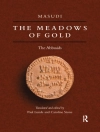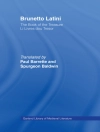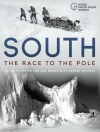Pathbreaking volume providing a detailed, state-of-the-art overview of the literature of this 350-year period and its cultural and historical background.
Early Modern German Literature provides an overview of major literary figures and works, socio-historical contexts, philosophical backgrounds, and cultural trends during the 350 years between the first flowering of northernhumanism around 1350 and the rise of a distinctly middle-class, anti-classical aesthetics around 1700. Recent scholarship has significantly revised many traditional assumptions about the literature of this period, starting with areassessment of the canon. The notion of ‘literature’ has expanded to include a much wider range of texts than before, such as broadsheets, illustrated books, emblem books, travelogues, demonological treatises, and letters. Greater attention to the cultural and social phenomena that affect literary production has led to hitherto neglected areas of research, including the culture of learning and learnedness; the idea of authorship; the relationship betweenthe intellectual elite and the state and other political authorities and institutions; the development of the family; gender dichotomy; and the early formation of an educated, urban middle class. In an introduction and twenty-seven essays on specific but broadly-based topics of seminal importance to the period, written by leading specialists from North America, the United Kingdom, and Germany, this pathbreaking volume reflects this state-of-the-art research.
Contributors: Klaus Garber, Graeme Dunphy, Renate Born, Stephan Füssel, Scott Dixon, Wilhelm Külmann, Max Reinhart, joachim Knape, Hans-Gert Roloff, Erika Rummel, John Alexander, Peter Hess, Andreas Solbach, Peter Daly, Helen Watanabe-O’Kelly, Jill Bepler, Gerhart Hoffmeister, Steven Saunders, jeffrey Chipps Smith, Wolfgang Neuber, Gerhild Scholz Williams, Anna Carrdus, John L. Flood, Laurel Carrington, Theodor Verweyen, John Roger Paas
Max Reinhart is Professor of German at the University of Georgia.
表中的内容
Introduction – Max Reinhart
Frühe Neuzeit– Early Modernity: Reflections on a New Category of Literary History – Klaus Garber
German Literature of the Middle Period: Working with the Sources – Hans-Gert Roloff
Literary Transitions, 1300-1500: From Late Medieval to Early Modern – R. Graeme Dunphy
The Evolution of Modern Standard German – Renate Born
Education in Early Modern Germany – Wilhelm Kuehlmann
The Reformation Movement in Germany – Scott Dixon
Early Modern German Printing – Stephan Fussel
Poetics and Rhetorics in Early Modern Germany – Joachim Knape
Neo-Latin Literature in Early Modern Germany – Wilhelm Kuehlmann
Ad fontes: German Humanists as Editors and Translators – Erika Rummel
Early Modern German Drama, 1400-1700 – John Alexander
Poetry in Gemany, 1450-1700 – Peter Hess
Early Modern German Narrative Prose – Andreas Solbach
The Emblem and Emblematic Forms in Early Modern Germany – Peter M. Daly
The Pictorial Language of German Art, 1400-1650 – Jeffrey Chipps Smith
Eros in Early Modern German Literature – Gerhart Hoffmeister
Literature and the Court, 1450-1720 – Helen Watanabe-O’Kelly
Music in Early Modern Germany – Steven Saunders
Early Modern German Libraries and Collections – Jill Bepler
Travel Reports in Early Modern Germany – Wolfgang Neuber
Demonologies: Writing about Magic and Witchcraft – Gerhild Scholz Williams
Parallel Lives: Heinrich Steinhöwel, Albrecht von Eyb, and Niklas von Wyle – John L. Flood
Parallel Lives: Desiderius Erasmus and Martin Bucer – Laurel Carrington
Parallel Lives: Martin Opitz and Julius Wilhelm Zincgref – Theodor Verweyen
Parallel Lives: Sigmund von Birken and Duke Anton Ulrich – John Roger Paas
Women’s Writing in the Context of Their Lives, 1520-1720 – Anna Carrdus












